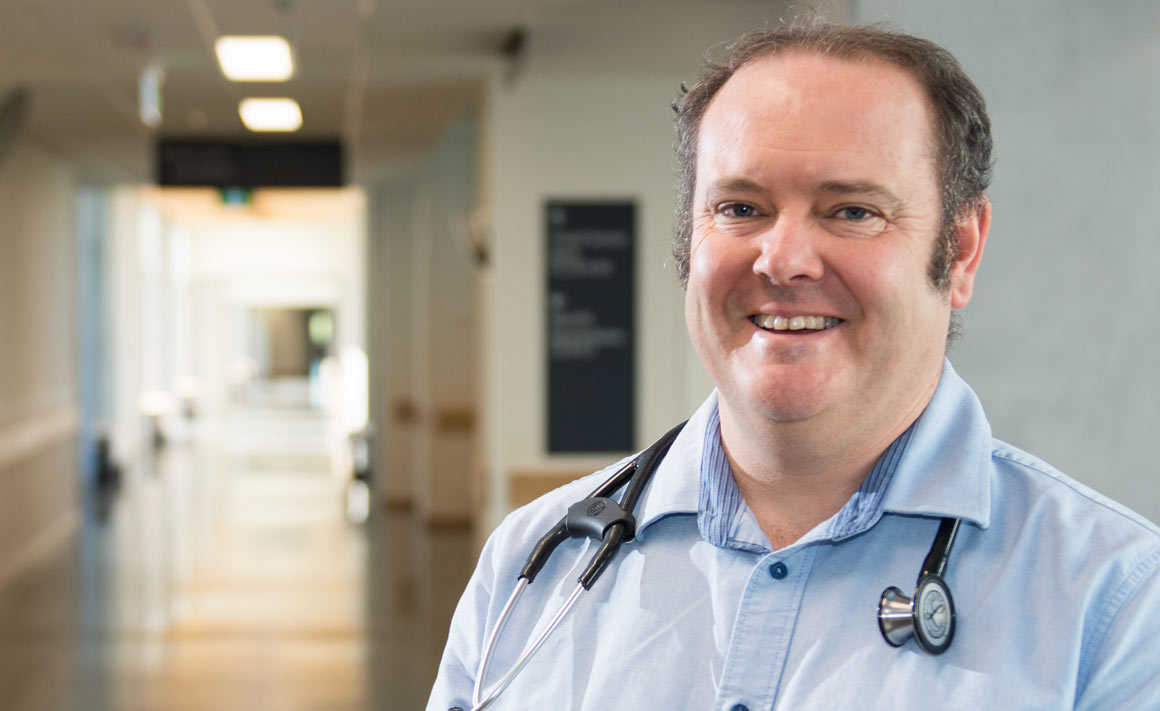
Big data will help researchers identify at-risk elderly people, enabling better care and assessment.
Our lifespan is like a rubber band, says Christchurch geriatrician and researcher Dr Hamish Jamieson. The band's thinnest, most vulnerable part represents the frailest stage of our life. If the band is now being stretched to 80-90 years, instead of last century's 70, the frail part is only slightly longer and the years spent living well are extended greatly. But the thin part is always the most vulnerable bit and, according to Jamieson, very important to better understand.
"Research has shown that older people with frailty are more vulnerable to sudden and often very serious declines in health in response to seemingly small trigger events such as drug side-effects or overmedication. Identifying older people in the community with frailty offers an opportunity to prevent or delay these adverse events.”
A key part of Jamieson's research programme (based at the University of Otago, Christchurch) over the next few years will be studying frailty to find the best way to identify our most vulnerable.
The frailty project is part of the government-backed, multi-agency Ageing Well National Science Challenge, led by the University of Otago. For his Ageing Well projects, Jamieson is using New Zealand's world-leading, comprehensive assessment system for older people called InterRAI.
The big data set has been collected by the Ministry of Health since 2012 and includes assessments of more than 150,000 elderly New Zealanders. These patient records contain data showing hospital and residential care admissions and mortality. So, to a researcher interested in ageing and mining big data sets, the InterRAI is an “Aladdin's Cave” of valuable information.
In partnership with the Canterbury District Health Board, Jamieson and his Big Data and Better Ageing research group will develop and trial a measure of frailty, incorporating factors collected in the InterRAI assessment. The measure could, in future, be used by primary and secondary health-care professionals to better identify frail individuals and more closely manage their care.
150,000
The big data set includes assessments of more than 150,000 elderly New Zealanders.
Once the frailty measure has been developed, Jamieson will work with colleagues in general practice and pharmacy to trial a programme to cut down on medications prescribed to frail elderly patients, and to assess the impact on health and well-being.
Jamieson says he was close to his grandparents growing up and has always appreciated the value of older people to society. So to be involved in research to improve outcomes for them is rewarding as well as cerebral work.
“I believe research into ageing is the new frontier of medicine. Using big data and technology to improve the health and well-being of our elderly is really exciting, complex and challenging work – and I love it.”
Funding
- Ageing Well National Science Challenge
- Health Research Council
- Royal Australasian College of Physicians
- The Canterbury Healthcare of the Elderly Research Trust